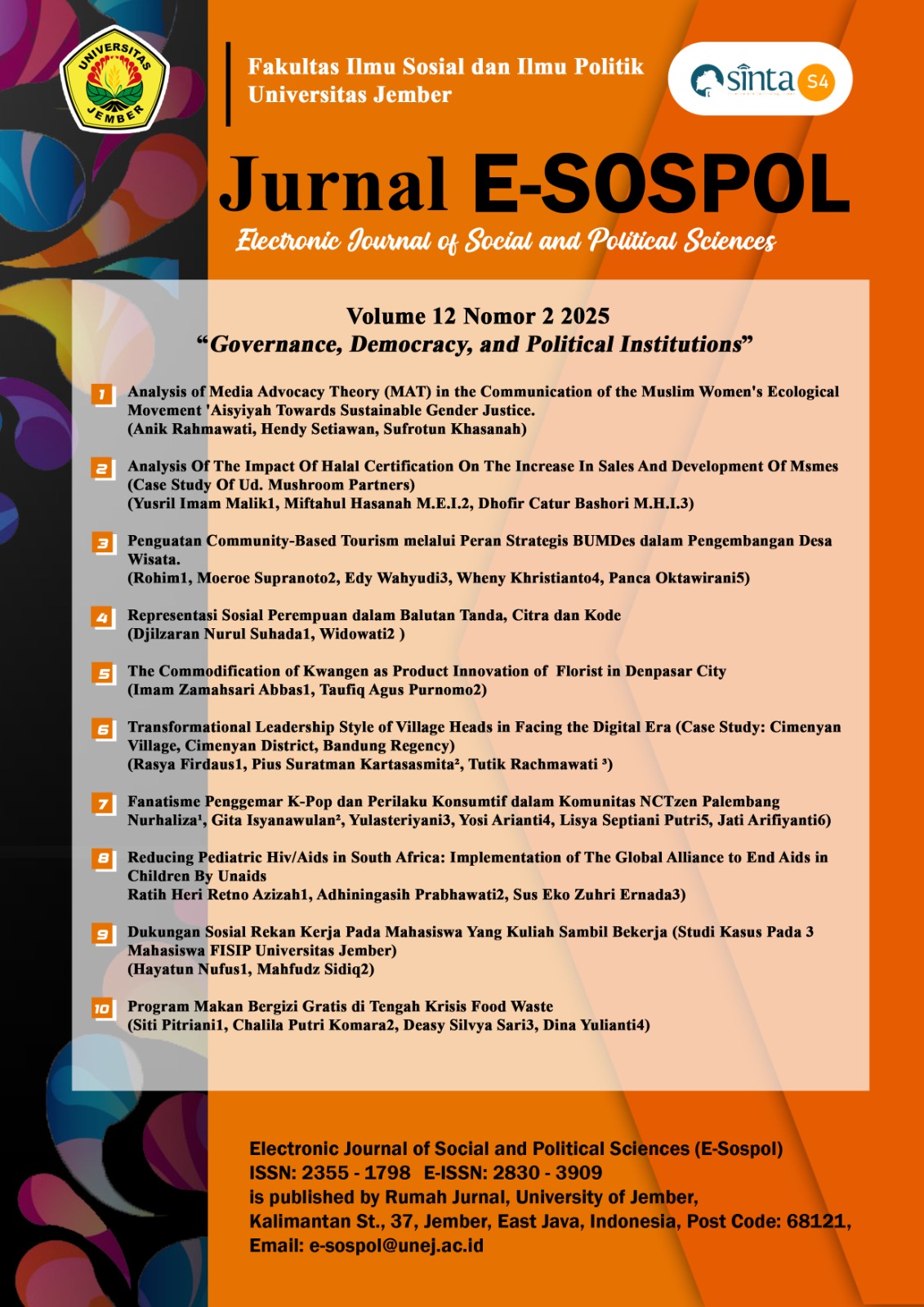Social Representation of Women in Signs, Images and Codes
DOI:
https://doi.org/10.19184/e-sospol.v12i2.53779Abstract
Humans certainly have a desire to fulfill their needs to survive, be it clothing, food, or shelter. Along with the development of civilization, especially in modern human civilization, this consumption is always closely related to signs, images and codes where consumption that was previously carried out to fulfill primary needs, now becomes an action carried out because of the influence of other actors through the
subconscious so that hyperconsumption can occur. The study examines the images, signs and codes that exist on women's bodies and the form of representation formed from their interactions on social media and the real world. The involvement of women in this discussion, because women are often seen as targets of advertising that are deeply involved in the arena of capitalism and media eroticism. The method used in this study is a qualitative method, this method was chosen because it is considered
able to explore meaning in detail. The theory used is the theory of hyperreality put forward by Baudrillard and the theory of social representation put forward by Serge Moscovici. Both theories were chosen because they were considered relevant to studying phenomena related to this problem, namely regarding the social representation of women in the form of images, signs and codes. The results of this study are as follows: (1) social media plays a role in forming social representations of women, (2) The objects used by women are signs of the meaning or image they wish to convey.
Downloads
Downloads
Published
Issue
Section
License
Penulis yang mengusulkan naskahnya untuk dapat diproses penerbitannya pada e-SOSPOL dianggap telah menyetujui beberapa hal sebagai berikut:
1. Penulis tidak dapat menarik naskah yang telah usulkan untuk diproses hingga mendapat jawaban dari Ketua Dewan Penyunting atas status naskah artikel ilmiahnya (diterima atau ditolak untuk diterbitkan).
2. Penerbit tidak bertanggung jawab terhadap kasus plagiasi atas artikel yang terbit pada e-SOSPOL
3. Penerbit tidak bertanggung jawab atas data dan isi dari artikel yang diterbitkan pada e-SOSPOL, dan sepenuhnya merupakan tanggung jawab penulis.







